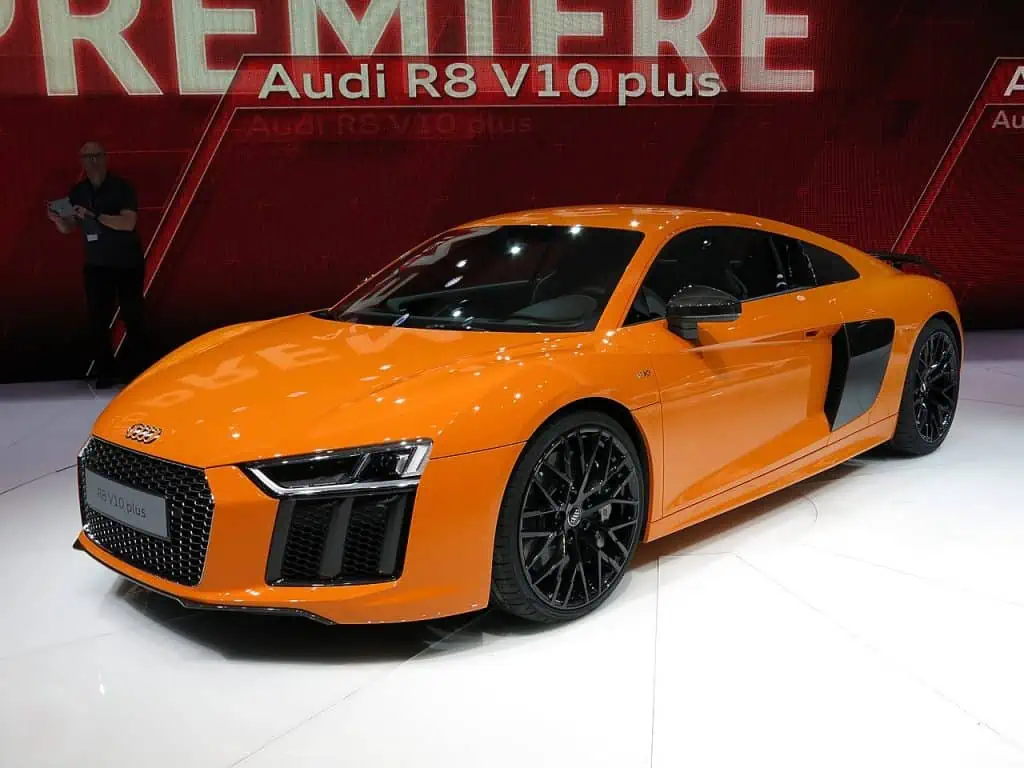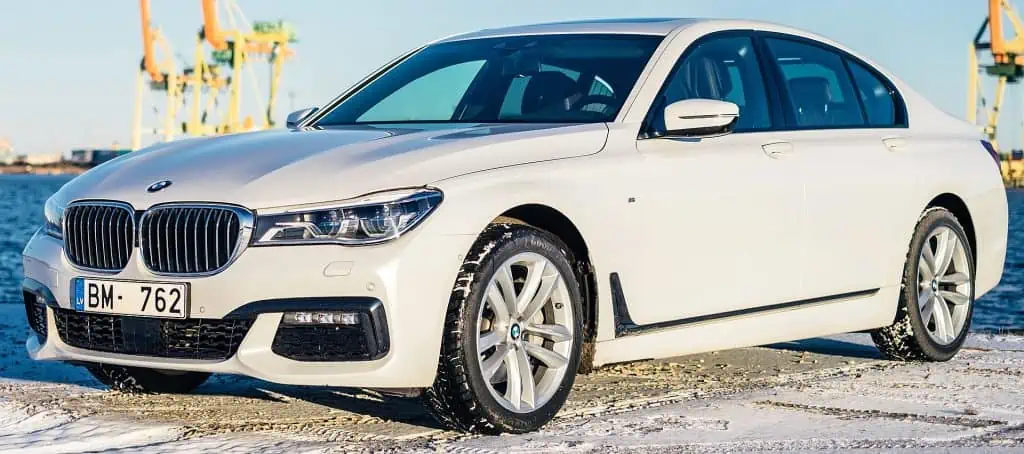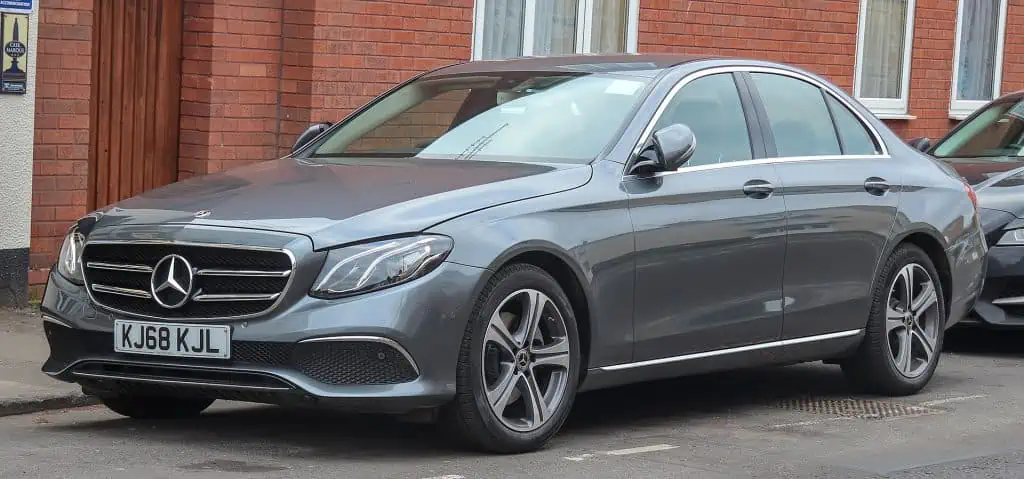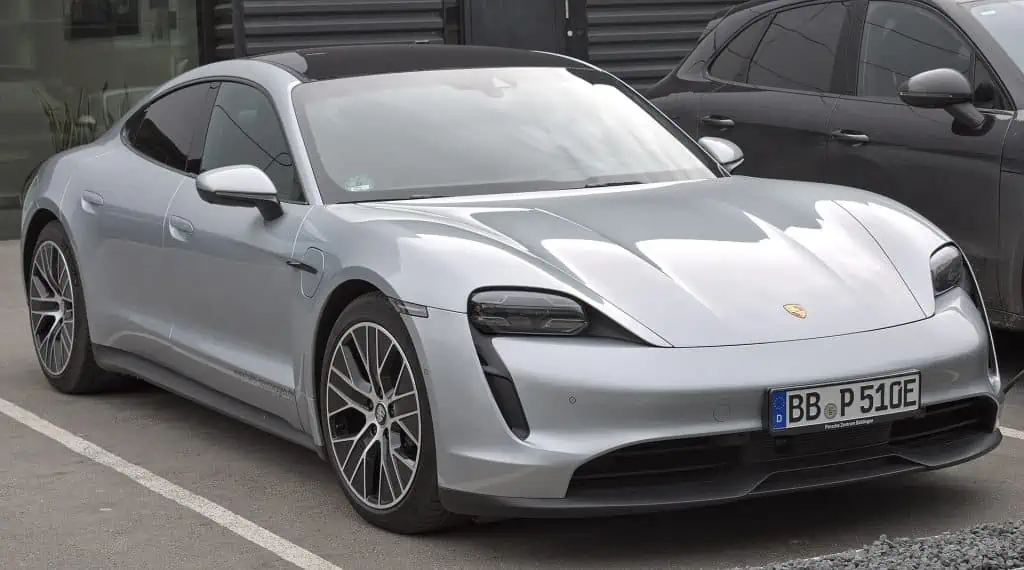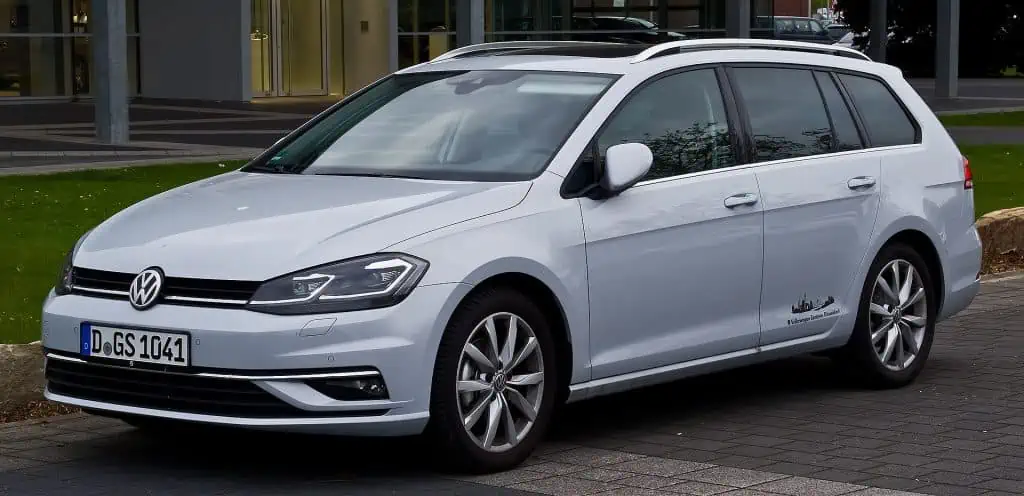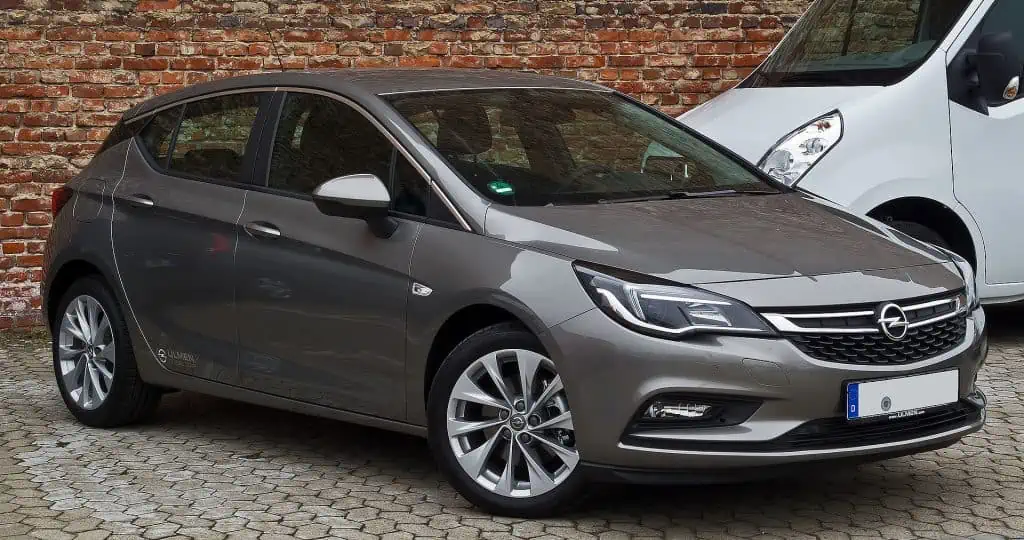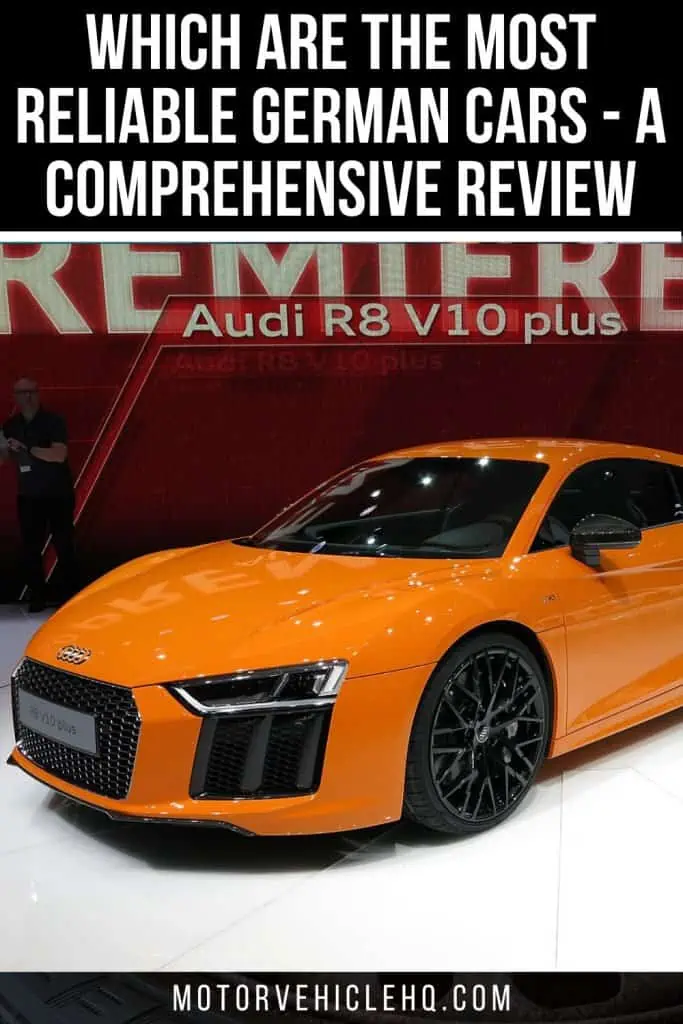Most people’s top concerns when purchasing a new car—or even a used one, for that matter—are reliability issues. Given how well-liked German vehicles are these days, the issue of which German vehicles are “the most reliable German cars” keeps coming up.
More specifically, everyone wants to know which German-made vehicle is the greatest option if reliability and upkeep expenses are a concern. We can’t reasonably cover every one of the nearly hundred various German automobile models from more than a dozen different manufacturers in one post.
We’ll break each section instead into many classes, or segments if you will. Starting with compact hatchbacks and economy automobiles, we’ll progress through sedans and SUVs.
I’ll be using information from a variety of reliability organizations, including Reliability Index and J.D. Power, as well as enthusiast communities, such as Piston Heads and Bimmer Forums, to mention just a few, to fairly score each car in this post.
I’ll be considering a range of automobiles from brands like Volkswagen, Audi, BMW, Mercedes, and Porsche. Only use this page as a loose guide, and carefully verify the condition and service history of each vehicle.
What About Small Economy Cars?
When you think about it, the Volkswagen Up! and the Audi A1 are the only two German vehicles present in this section, and they are engaged in a battle. Yeah, you could argue that the Volkswagen is far less expensive than the Audi and is a tiny luxury car, whereas the A1 is, but that isn’t the point.
The truth is that both of these vehicles will serve that purpose admirably if you have the money and prefer to use a compact daily runabout rather than your primary or weekend vehicle. The Up! doesn’t offer a diesel option, so if you want a diesel you’ll have to choose the A1.
Despite this, the diminutive Up! performs better than Audi’s venerable A1 in most reliability tests. According to a WhatCar report, the Volkswagen Up! is an incredibly dependable automobile, with only 3% of all registered cars experiencing any form of problem or fault. They rated its reliability at an astounding 99.4%.
A 2016 Audi R8 by Norbert Aepli, Switzerland / CC BY 4.0. The Audi A1 is still a fantastic alternative if you want a small car that’s also opulent and jam-packed with features and technology. The Audi A1’s interior also differs significantly from the VW’s.
Who Manufactures the Most Reliable German Cars?
The sole option if you want a little car that’s also luxurious and packed to the gills with features and technology is the Audi A1, which is still a great alternative.
The interior of the Audi A1 is likewise substantially different from the VW’s. The A1 frequently develops issues with the sliding top, the turbo, and the seatbelt edges fraying. However, these problems are typically localized and not common.
One thing to keep in mind: As the VW Polo shares many parts with the Audi A1, the majority of engine choices, problems, and operating expenses are essentially the same. The Polo is less expensive and more practical than the A1, but the inside is less plush.
My selection for this category of the most reliable German cars is the VW
Compact Mid-Size Hatchbacks
I had to do a lot of studies to determine which are the “most reliable German cars” because this is one of the most hotly disputed categories in the automotive industry.
As the BMW 1-Series is the clear driver’s favorite, let’s start there. Although it is the only rear-wheel drive vehicle in this segment and has a strong chassis, it has far too many electrical issues to be the winner in the reliability test.
Moreover, the timing chain on first- and second-generation automobiles had a problem that, should it break or bend, might destroy the entire engine.
Further challenging is preventative maintenance, which necessitates dropping the entire engine because the chain is located close to the bulkhead at the back of the motor.
One of Mercedes’ most well-liked cars to date, the new A-Class isn’t their most dependable, though.
The engines themselves, particularly the Renault engines used in the lower trims, are rock-strong and practically durable, but everything else in and around them is prone to problems of one kind or another.
Who Manufactures the Most Reliable German Cars?
The driveshaft can separate and result in a loss of drive, and some model years have been known to experience oil leaks as a result of faulty O-rings.
But, the biggest problems are known to occur with double-clutch transmissions, which can be expensive to repair. Mercedes placed 26th out of 31 manufacturers in the most recent WhatCar dependability tests, which were conducted.
Due to their shared chassis and foundations, the Volkswagen Golf and the Audi A3 are almost identical vehicles on the outside. The VW is the less expensive vehicle with a little worse cabin (at least in terms of materials), but it provides the best value.
DPF problems, EGR valve problems, broken suspension parts, and leaky doors are common difficulties. Yet, repairing a used Golf or A3 will always be less expensive than fixing an A-Class or a 1-Series.
My selection for this category of the most reliable German cars is the Volkswagen Golf.
Slick Hatchbacks
I’d want to reiterate that my personal preference in this segment is the outgoing rear-wheel-drive BMW M135i/M140i, but because it is fundamentally a 1-Series, it has similar problems to the base models.
The A45 AMG is a truly amazing vehicle. It’s one of the fastest things you’ll ever experience. Thanks to its four-wheel-drive system and more than 350 horsepower, it will destroy the majority of supercars on a narrow B-road, but it is not the test’s victor.
A 2.0-liter engine with high levels of stress will need a lot of maintenance, and god forbid anything should break or fail since the expense of fixing it would be prohibitive.
A 2016 BMW 7 Series by Kārlis Dambrāns / CC BY 2.0. The BMW 1-Series is the undisputed driver favorite. Although it has a sturdy chassis and is the only rear-wheel drive car in this class, it has far too many electrical problems to come out on top in the reliability test.
Again, Volkswagen and Audi are the only two that matter. I adore the fantastic straight-five-cylinder turbocharged engine in the RS3, as well as the noise it creates, but I simply cannot tolerate how understeer-prone it is.
It is significantly more dependable than either the BMW or the Mercedes, but the Golf R outperforms it in every way.
Who Manufactures the Most Reliable German Cars?
The Golf R is an amazing car. It is among the quickest hot hatchbacks in terms of acceleration, and instead of the 2.5-liter engine found in the RS3, it has a smaller 2.0-liter four-cylinder engine.
The Golf’s poor clutch on vehicles with manual transmissions, cheap plastics in the cabin that rattle, and soot in the exhaust pipes are its main drawbacks.
Yet, if I had to purchase a hot hatchback solely based on dependability, I wouldn’t bother with any of these and would just purchase a Golf GTI.
Granted, it is only front-wheel drive, but that means there are two fewer axles and one fewer differential to consider. It will also be less harsh on the parts of its suspension.
My selection for this category of the “most reliable German cars” is Volkswagen Golf GTI.
The Midsize Luxury Sedans
These automobiles are all so distinct from one another that you question if they are even in competition with one another, even though this is perhaps the most lucrative market for each of the manufacturers featured here.
If you want the best possible driving vehicle, the BMW 3-Series is the obvious choice. It possesses the most dynamically capable chassis of any German rival, the best steering of any competition, and the most powerful engine range of any opponent.
It is not, however, one of the “most reliable German cars” in its class because of frequent electrical problems and accessory failure. Typical problems can involve the water pump, the thermostat, the turbocharger, and many other components.
Who Manufactures the Most Reliable German Cars?
The C-Class offers one of this segment’s best rides and a stunning interior. The W205-gen introduced a decline in build quality from the vehicles produced up until and including the W204 generation. There are problems with failed sensors, rattling trim, and noisy interior panels.
Many people consider the Audi A4 to be the perfect daily driver. It boasts one of the best cabins in its market and is front-wheel-drive in standard trim, making it simpler to purchase and maintain.
Diesel models are economical and have a long track record of reliability. Yet, if you choose the all-wheel-drive Quattro model, you’ll have a vehicle that is unstoppable in all weather.
The Audi A4 is a reasonably dependable vehicle that shares the majority of its engines with the VW Golf, making it virtually immune to engine problems.
The most frequent complaint about any generation of the Audi A4 is that it tends to use a lot of oil. Despite this, it is still without a doubt the most dependable vehicle among its competitors.
My selection for this category of the “most reliable German cars” is the Audi A4.
The Luxury Large Sedans
Large luxury sedan the BMW 5-Series handles like a much smaller vehicle. It shouldn’t be as effective in the corners as it is.
Early E60-gen vehicles had certain EGR valve difficulties and a penchant for consuming suspension components at exorbitant rates.
The E60 series was replaced by the F10 generation, which was an all-around superior car with greater MPG and fewer problems.
Undoubtedly the best vehicle the business has ever produced is the current G30 5-Series. It has the newest technology and features, a stunning exterior, and a very well-built interior. The ZF 8-speed gearbox is also impenetrable.
The interior of the Mercedes E-Class is stunning, but it isn’t as solidly constructed as the S-Class. Its infotainment system is inferior to BMW’s iDrive, and it squeaks and rattles just like the C-Class.
A 2016 Mercedes Benz E Class by Vauxford / CC BY-SA 4.0. The Mercedes E-interior Class is gorgeous, but it isn’t built as well as the S-Class. Its infotainment system is inferior to the iDrive system offered by BMW, and it rattles and squeaks just like the C-Class.
The most recent E-Class didn’t perform as well in WhatCar’s tests as its predecessor did. Although it still received a respectable reliability rating of 93.7%, it might have done far better.
Who Manufactures the Most Reliable German Cars?
Audi’s A6 performs horribly when it comes to reliability, especially when compared to its smaller sibling, the A4, despite leading the mid-size sedan class.
Increased oil consumption (like with other VW Group vehicles), timing chain troubles, gearbox issues, air conditioning problems, a damaged flywheel, failed electronics, and other issues are frequent failures.
Although the most modern Audi A6 appears to be more reliable, earlier models are notoriously expensive to repair.
I have to award this round to the BMW due to its incredible engine lineup and the unbreakable ZF transmissions. Yes, it still has some minor issues and common flaws, but what car doesn’t?
My selection for this category of the “most reliable German cars” is the BMW 5-Series.
The Luxury Limos
It seems a little silly to pick a winner in this area because these are some of the most unreliable vehicles you will ever see. One of the worst used cars you can purchase is a BMW 7-Series.
Don’t fall for the second-hand market’s low prices on old items. On a dated 7-Series, anything that can go wrong will. It is a matter of when not if.
Yet, the S-Class from Mercedes doesn’t do much better than the 7-Series. Old diesel-powered S-Class models are just a little bit more dependable than their gas-powered rivals.
They tend to quickly degrade suspension parts due to their weight and size. If the air suspension breaks, fixing it would be a complete hassle and a financial disaster.
If you don’t have tons of money you don’t mind pouring down the drain, stay away from AMG models like the plague. The V12-powered S65 AMG is the worst of them all.
Who Manufactures the Most Reliable German Cars?
When it comes to reliability, the Audi A8 is the least problematic of the bunch. Much more frequently than engine or transmission problems, common problems include electrical parts or ancillaries.
They have a history of handbrake issues and sensor failures. The air suspension is a significant weak point and a tremendous pain to fix, just like the other two.
The Audi A8 and Mercedes S-Class are a tie for my choice among the “most reliable German cars” in this category.
The Compact Crossovers
Even though one is a little bit bigger than the other, BMW offers two compact-ish crossovers, so I’ll lump them both into the same category. Since the BMW X1 and X3 use many of the same parts, they have similar weak points and problems.
The X1 and the X3 have a negative reputation generally because the 2.0-liter diesel engines, which are the same unit as the four-cylinder engines found in the 1-Series and the 3-Series, experience the same timing chain snapping problems. It’s a shame because automobiles are generally dependable otherwise.
In comparison to their German rivals, Mercedes’ GLA and GLC are relatively new models, having been introduced in 2015. The engines are a little bit shabby and rustic, but they are reasonably dependable. The cabins, like the majority of more recent Mercs, have questionable construction.
They are also prone to “crabbing” and making noises when on full lock. Crabbing is the appearance of the car’s wheels on one axle being out of line with the other.
Who Manufactures the Most Reliable German Cars?
The Audi Q3 is a reasonably reliable car, according to WhatCar’s reliability research. Diesel accounts for 25% of the most frequent complaints, whereas only 13% of owners of gas vehicles voiced similar grievances.
A 2019 Porsche Taycan by Alexander Migl / CC BY-SA 4.0. Porsche has grown to offer premium automobiles in general but continues to focus primarily on developing performance cars. High-end sedans, SUVs, and crossovers are among them. They currently have an electric vehicle, the Taycan.
The most frequent problems with the gas version are electrical glitches and bodywork-related problems. Audi reportedly performed admirably as a brand in WhatCar’s evaluation, placing 20th out of 31 manufacturers.
Contrary to what you may have read online, I suggest the Porsche Macan. Its structural underpinnings are very similar to those of the Q5, but Porsche has modified it to make it much sportier.
The Macan came in third place in WhatCar’s assessment, placing it among the most dependable luxury crossovers currently available.
The Porsche Macan is my selection for this category of the most reliable German cars.
The Midsize Luxury SUVs
In keeping with the brand, the BMW X5 is a sizable SUV that resembles a 44 off-road vehicle. It yet possesses the dynamic skills of a typical automobile. It’s amazing how a vehicle with a huge center of gravity can drive like a sedan. But it does.
Depending on the generation of the X5, there may be common problems. But, as a general rule, electrical problems and ancillary flaws affect the majority of automobiles. Several model years’ tailgates have been known to squeak, and child safety locks occasionally fail to fully engage.
EGR valve problems are not unheard of. The engine can still cut out due to this typical issue. Last but not least, wheel bolts on vehicles produced between July 13 and August 2 of 2018 need to be examined.
This is due to the possibility that they weren’t properly tightened at the manufacturing.
Although it is only new in name, the Mercedes GLE is nevertheless rather new. It was referred to as the ML before Mercedes’ most recent name nomenclature.
Although the engines in the first generation Mercedes MLwase were notoriously dependable, they were known to rust badly in colder climes.
Who Manufactures the Most Reliable German Cars?
According to WhatCar, the most recent GLE is one of the most dependable SUVs. Just 18% of the tested GLEs had any problems at all, and the majority of them were minor problems with the steering or engine electrics.
More than two-thirds of those vehicles could be driven and transported to the mechanic on their own.
One may easily infer that the Audi Q5 is equally as trustworthy based on its performance. Unfortunately, that is not the case.
Early versions of the Q5 had several frequent problems, such as high oil consumption, creaking or leaky panoramic sunroofs, broken cigarette lighters, failed boot switches, problems with the DRLs, and a ton of other problems.
A 2017 Volkswagen Golf Mk7 by M 93 / CC BY-SA 3.0 de. The VW Golf and the Audi A3 are almost identical from the outside due to their shared chassis and underpinnings. The VW offers the best value even though it is a less-priced car and has an interior with somewhat inferior materials.
Again, I’d have to award the Cayenne, the Macan’s bigger sister, the victory based on WhatCar and their exacting tests.
There were some automatic gearbox problems with the early vehicles. Moreover, the air suspension is vulnerable to failure, particularly as the automobile ages. The Cayenne is a sturdy car nonetheless.
It’s the one I would choose, even if I were purchasing used. Avoid the Turbo and Turbo S versions, and you shouldn’t have any significant problems.
The Mercedes GLE is equal to the Porsche Cayenne for my choice in this category of the “most reliable German cars.”
The Full-Size Luxury SUVs
We’ve finally reached the juggernauts of the SUV market. BMW’s newest flagship SUV is the X7. It’s a true seven-seater vehicle that can travel anywhere and accomplish any task. Since it’s so new, frequent problems are challenging to identify.
Yet when I browsed through online forums, I kept running into the same problem.
There may be issues with the sensor for the back seats. The car will consequently believe that the back seats are either folded down or jammed up.
If it does this, a warning will appear on the dashboard that you cannot remove, and the seats will occasionally refuse to rise or lower. The problem can be resolved with a fast trip to the dealer for a replacement sensor. So, it’s neither serious nor expensive.
The best option is the X7 30d, as that engine has been successful in numerous other applications. If I were you, I’d stay away from the M50d since investing in a 3.0-liter quad-turbo diesel is a recipe for disaster.
Indeed, it will move incredibly quickly for an SUV, but after the guarantee expires, repairs will be prohibitively expensive.
Who Manufactures the Most Reliable German Cars?
For 2019, the Mercedes GLS is completely new. So, it’s difficult to predict if it will be as dependable as the previous GL was. The GL frequently develops issues with the front suspension (leaks in the air suspension). also, gearbox problems (hard shifting in the lower gears).
For good cause, the Audi Q7 is arguably the most well-liked vehicle in this market. Several common problems have been noted by owners across the entire range, with misfiring issues, knock sensor issues, and even fuel tank pressurization problems being the most serious.
The Q7’s first generation has a hunger for tires. This is because they used to wear out the outer edges far more quickly than any other region. Owners sometimes have to change their front tires after just 5,000 kilometers.
Even so, the Q7 is without a doubt the most dependable vehicle in this group, but I believe the X7 will be the most dependable vehicle among the ‘new’ generation SUVs.
The Audi Q7 and BMW X7 are tied for first place in this category of most reliable German cars, in my opinion.
A 2015 Opel Astra by M 93 / CC BY-SA 3.0 de. Opel’s reputation for dependability has been tarnished by reports of issues with oil-hungry petrol engines and questionable manual transmission longevity, although newer models show more promise in this area.
Facts You Need to Know About the Most Reliable German Cars
- Reliability and affordable maintenance expenses are crucial factors to take into account when buying a used German car to avoid making a costly error.
- German automakers Opel, Volkswagen, BMW, Mercedes-Benz, Audi, and Porsche are the six largest companies in the industry.
- Although tales of problems with oil-hungry petrol engines and dubious manual transmission endurance have marred Opel’s reputation for dependability, newer models hold greater promise in this regard.
- One of the most dependable models is the Opel Astra, which provides a good ownership experience thanks to its fuel-efficient engines and tried-and-true electrical systems.
- Due to advanced technology and safety features, Volkswagen’s reliability has declined, although its most recent models demonstrate improvement, with the Tiguan being the most dependable model in its lineup.
- The BMW 5 Series is the most dependable model, scoring higher on car dependability tests than the simpler 1 and 3 Series. BMW’s reliability has always been just above average.
- Mercedes-Benz was once praised for its durability and dependability, but according to a survey of car owners conducted by the French magazine Auto Plus, the C-Class is the most reliable model.
- The Audi A3 is the most trustworthy of Audi’s models, which are consistently rated among the top 20 most dependable vehicles.
- The Porsche 911 is the brand’s most dependable vehicle, and Porsche’s reliability is far above the industry average.
- The dependability of each model should be taken into account independently, and it’s crucial to research the car’s history before buying a used one.
- The vehicle identifying number (VIN) can be checked to assist prevent expensive issues, and carVertical provides an immediate analysis that ranks the most trusted German automakers.
The Most Reliable German Cars: Which Ones are They Overall?
The most reliable German cars vary depending on the kind of vehicle you’re looking at. VW produces some of the most dependable German compact automobiles.
This also applies to compact city automobiles like the Volkswagen Up! or VW Golf (or the hotter Golf GTI). Mercedes, Audi, and BMW are in a close race once the ante is raised.
The most dependable sedans are the Mercedes S-Class, BMW 5-Series, Audi A8, and Audi A4. With the GLE and X7, Mercedes and BMW also rule the crossover and SUV market. But, Porsche, with their Macan and Cayenne, must share this space with them.
Important Facts About the Porsche German Cars?
German company Porsche was established back in 1931. They were founded more than 90 years ago, and its main office is in Stuttgart, Germany.
Ferdinand Porsche, the company’s founder, has made a significant contribution to the history of German vehicles. He contributed to the creation of VW and, in the past, collaborated with Mercedes on its race car program.
Porsche still primarily concentrates on producing performance vehicles, although having expanded to produce premium vehicles in general. They include high-end sedans, SUVs, and crossovers. Also, they now have an EV, the Taycan.
A 2018 Ford Kuga by Vauxford / CC BY-SA 4.0. Everyone is curious about which German-made car is the best choice if dependability and maintenance costs are an issue. The roughly 100 different German car models from more than a dozen different manufacturers are too many for us to fairly discuss in one post.
Important Facts About the BMW German Cars?
Indeed, one of the oldest brands in the world today, BMW is a product of Germany. When it was first established in 1916, it gained traction by producing motorbikes and airplane engines.
BMW’s corporate headquarters are still located in Munich, Bavaria, Germany. The Bayerische Motoren Werke, also known as BMW, or Bavarian Engine Works company, is how they earned their name.
Before producing its first automobile in 1928, BMW took some time. After the Second World War was over, BMW soon stopped producing airplane engines. Their main line of work today is producing sport bikes and high-performance vehicles.
Important Facts About Audi German Cars?
One of the most recognizable German brands in history is Audi. Yet, the way it was established is somewhat unclear. In 1909, August Horch, the company’s founder, created Audi.
The Roman word for listen, Horch, which is what Horch means in English, is where the name Audi originated. Horch, DKW, and Wanderer, three other German automakers, were combined with Audi in 1932.
The four automobile brands connected through the four rings to establish Auto Union, which is also how Audi received its emblem.
Volkswagen acquired Auto Union from Mercedes after the Second World War, and Mercedes changed its name back to Audi. This is how we’ve come to recognize the brand since the 1960s.
Important Facts About the Mercedes German Cars?
Not only is Mercedes-Benz a German brand, but it’s also one of the oldest car brands currently in business. Karl Benz, who created Mercedes in 1883, is credited with developing the first modern automobile as we know it today.
The Benz-Patent Motorwagen is recognized as the first real automobile, and its effective application of an internal combustion engine continues to serve as a model for contemporary vehicles.
Although the majority of people think of Mercedes as a manufacturer of high-end and powerful vehicles, in truth, they are considerably more varied. Even now, Mercedes remains among the biggest producers of commercial vehicles, including trucks, buses, and vans.
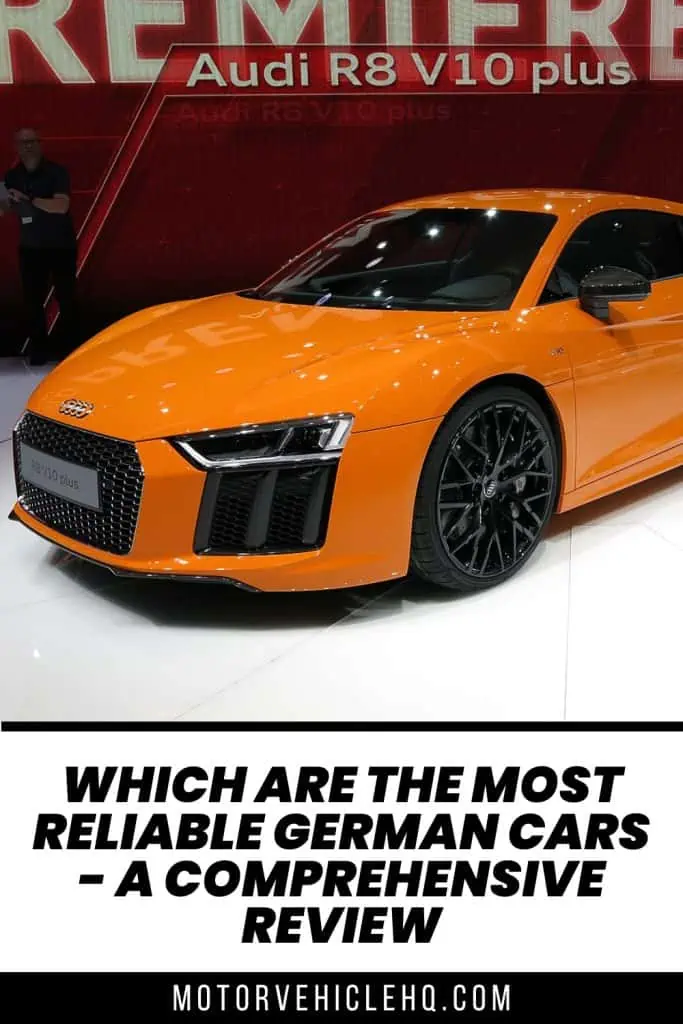
A 2016 Audi R8 by Norbert Aepli, Switzerland / CC BY 4.0

Jim Wicks is the founder of MotorVehicleHQ. With over two decades of experience in the automotive industry and a degree in Automotive Technology, Jim is a certified car expert who has worked in various roles ranging from a mechanic, car dealership manager, to a racing car driver. He has owned more than 20 cars over the past 15 years. Ask him about any vehicle you see on the road and he can tell you the make, model and year. He loves the aesthetics of all things cars, and keeps his vehicles in pristine condition.
In his free time, Jim enjoys getting his hands dirty under the hood of a classic car or taking long drives along the country roads. His favorite car? A 1967 Shelby GT500, a true classic that, according to Jim, “represents the pure essence of American muscle.”
